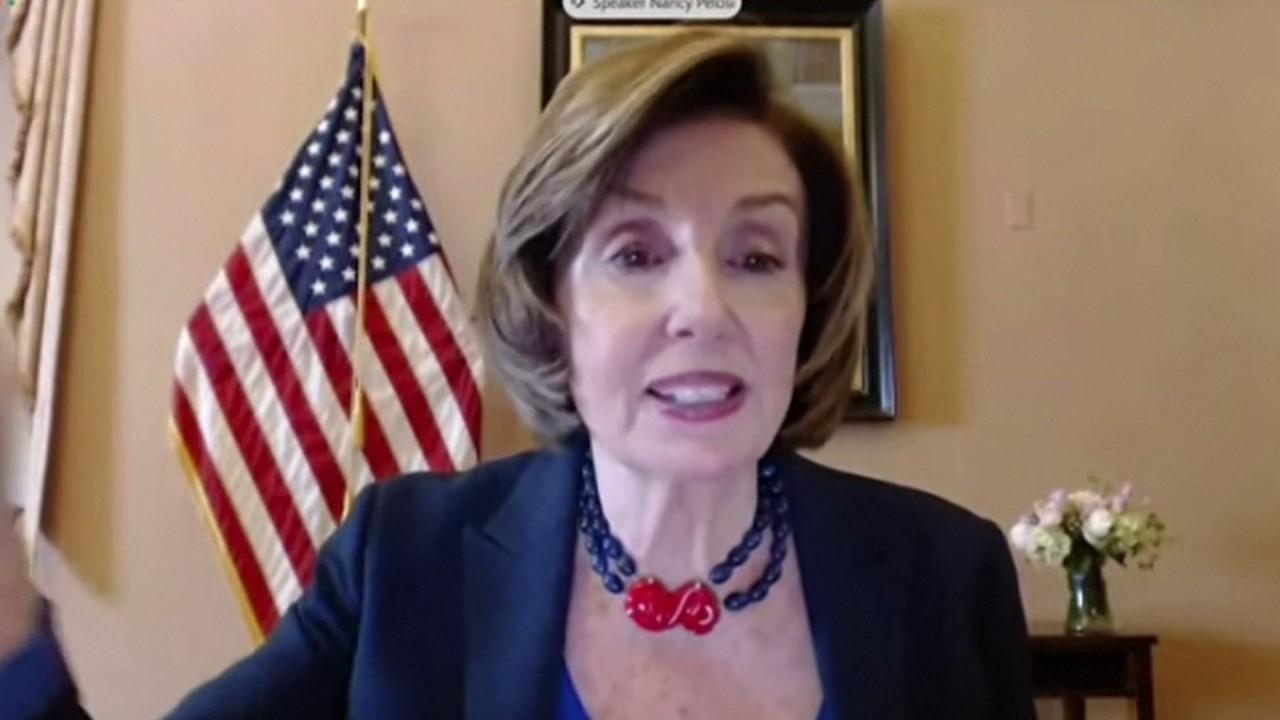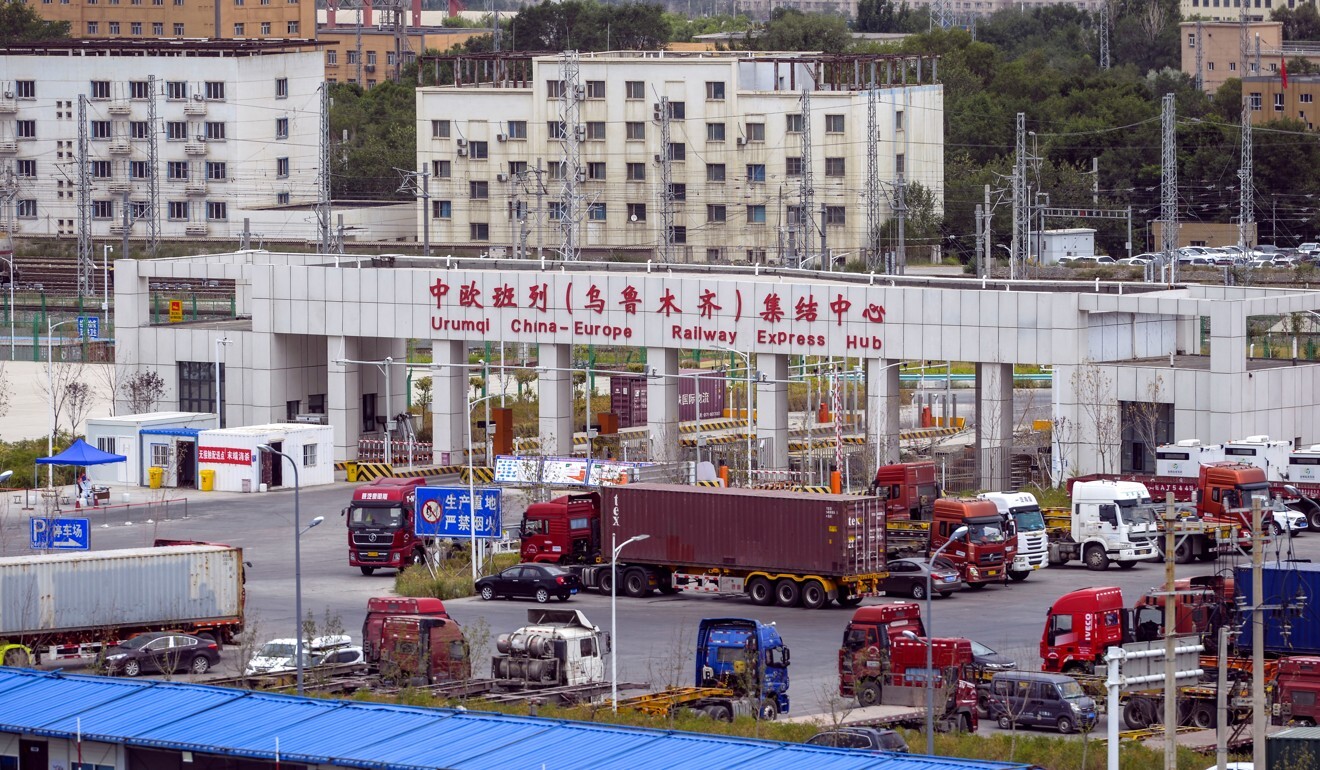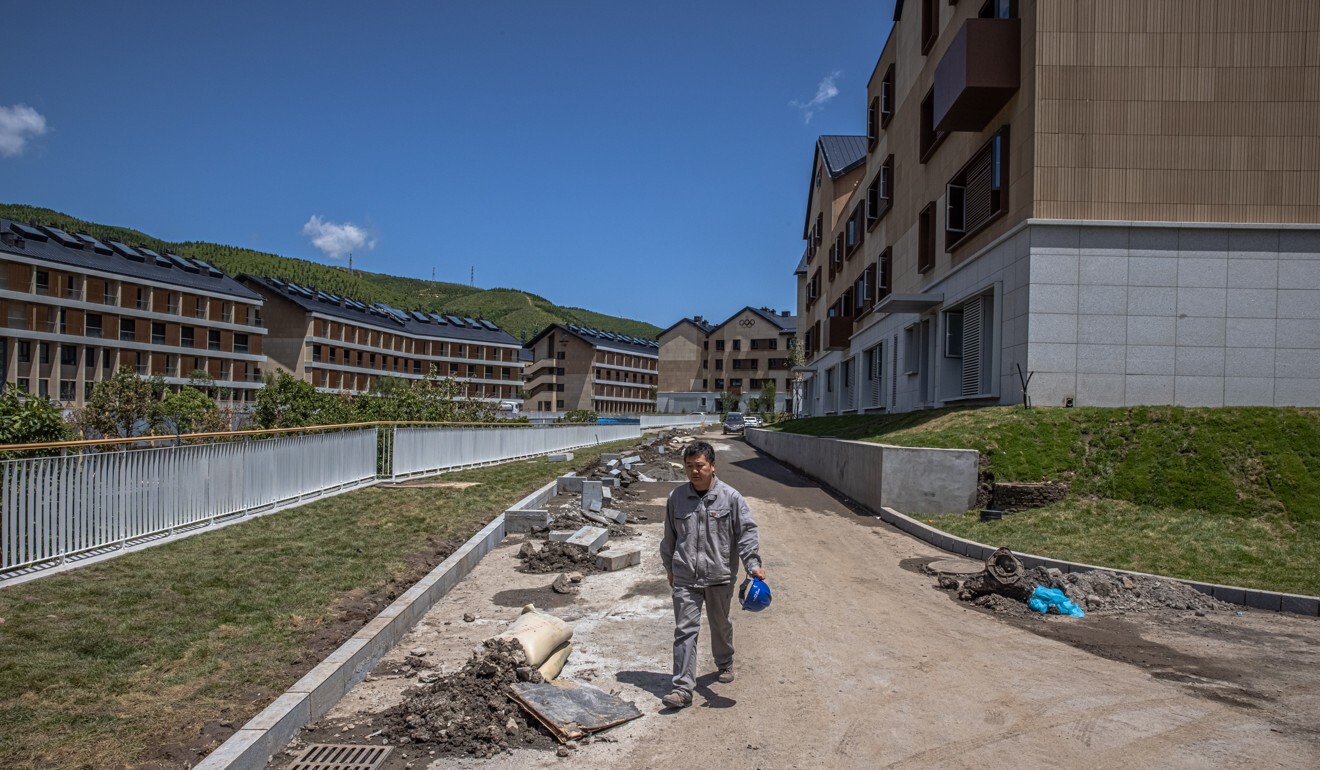
US companies deflect tough questions over Beijing 2022 Winter Olympics
- Executives with Coca-Cola, Airbnb, Intel, Procter & Gamble and Visa decline to commit to US lawmaker calls to condemn Beijing’s actions
- Human rights concerns and calls to boycott the Winter Games grow in Europe
“We’re deeply concerned when we hear about human rights violations in any jurisdiction in which we do business,” said Steven Rodgers, executive vice-president and general counsel at Intel, without referencing China or the Communist Party of China (CCP).
“Our sponsorship of the Olympics is not an endorsement of any specific host country nor an acceptance of every activity that may occur within any specific country.”

00:41
Pelosi calls for US diplomatic boycott of 2022 Beijing Winter Olympics over human rights abuses
“Every single one of you refused to say a single word by all appearances that will cost you one bit of market share inside of mainland China,” said Senator Tom Cotton, a Republican from Arkansas.
“This is the most pathetic, disgraceful hearing in which I’ve participated in eight years. Obviously every one of you … were sent here with orders not to say anything that could offend the Chinese Communist Party.”
“I rarely in life agree with Senator Tom Cotton. I’m pretty much in full agreement with him today,” echoed Representative Tom Malinowski, a Democrat from New Jersey.
Company executives said they had little control over standards, political issues or decisions involving hosting.
Biles withdraws from team gymnastics final over mental health concerns
“We view the games as one of the most important global movements that support peace, friendship and mutual understanding. At Visa, our mission is to connect the world,” said Andrea Fairchild, the company’s senior vice-president of global sponsorships. “When we empower someone … we can bring about positive change to uplift everyone, everywhere.”
Lawmakers countered that companies have significant influence if they choose to use it, including their advertising clout, power of example, power to negotiate sponsorship contracts and ability to lobby against restrictions on athletes voicing their opinions.
Two companies, Airbnb and Coca-Cola, came under more pointed fire involving their China operations. The Telegraph reported that Airbnb listings in China ban ethnic minority groups, including Uygurs and Tibetans.

David Holyoke, head of Airbnb’s Olympics and Paralympics partnerships, said the hospitality company opposes discrimination in the 220 countries and regions where it operates, but is required to follow local laws and regulations.
Paul Lalli, the company’s global vice-president for human rights, said it does not use Chinese sugar outside the country and is confident that forced labour is not used in its supply chains.
“Honestly, auditing suppliers in Xinjiang is just about impossible,” said Virginia Representative Jennifer Wexton, a Democrat. “It’s a police state, and forced labour is so systemic that it’s hard to determine if there’s forced labour in the supply chain.”
Is China taking a more pragmatic approach to ease tensions with the US?
But lawmakers also thanked the companies for agreeing to appear given that many other companies declined, adding that more pressure should be put on the International Olympic Committee for selecting Beijing.
In Europe, talk of any form of Olympic boycott was relegated to the margins until recently. Over the last few weeks, it has gained momentum, with a series of motions urging officials, companies and even athletes to boycott Beijing 2022.

In a vote earlier this month, lawmakers called for both the EU institutions and its 27 member states to decline invitations to attend the Beijing Winter Olympics next year, “unless the Chinese government demonstrates a verifiable improvement” in its human rights record.
The resolution is not binding, and European Commission sources have indicated that it has no intention of acting on it. But it was the first major sign in the bloc that a push for a boycott had entered mainstream politics.
The following week, British parliamentarians unanimously passed a motion calling for the British government to stage a diplomatic boycott of the games unless Beijing ends the “atrocities” taking place in Xinjiang, where it is accused of having up to 1 million Uygurs and other ethnic Muslim minorities in detention centres.
The influential British Foreign Affairs Committee had previously recommended that the government not to attend the games, and should urge others to abstain too.
Beijing has lashed out at the European boycott movements.
“We urge the relevant UK MPs to stop playing despicable political games, stop demonising China and refrain from standing on the opposite side of athletes and winter sports lovers across the world. It will be self-defeating for them to continue down this road,” read a statement from the Chinese embassy in London, in response to the Westminster vote.


